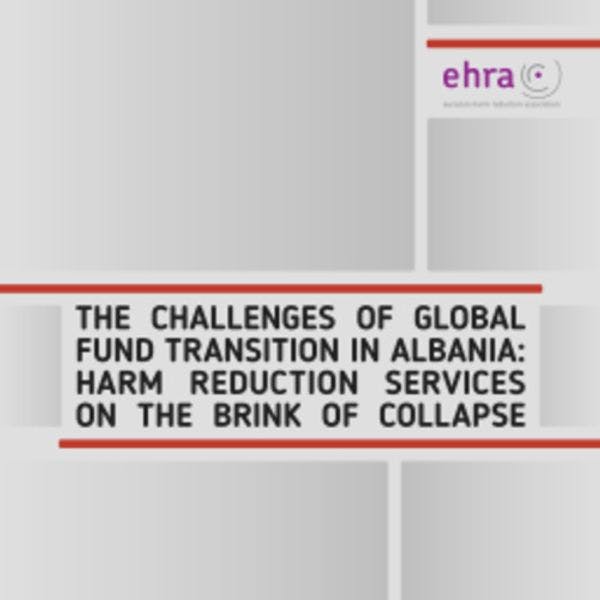The challenges of Global Fund transition in Albania: Harm reduction services on the brink of collapse
According to the estimated needs to sustain HIV and TB responses in Albania, approximately US$3 million is required per year to address the two epidemics effectively. The implementation of the current Global Fund HIV and TB grant of approximately US$5.8 million is ending in December 2019. The last transition grant is expected to start in January 2020, but its level of investment will only be in the region of one-third of the value of the current grant.
This case study looks at the challenges faced in sustaining HIV prevention programmes among KAPs, implemented primarily by civil society organisations (CSO’s), as a result of the withdrawal of the Global Fund through the transition period of 2020 to 2022 and the lack of government capacity and resources to maintain the already limited services that will likely result in the re-emergence of HIV epidemics among people who inject drugs (PWID), sex workers (SW) and men who have sex with men (MSM).
Based on the issues raised in this case study, it is evident that the Global Fund, bilateral donors and private foundations need to establish a ‘safety net‘ through which sustainable bridging funds can be made available that are able to address the challenges faced in those countries, such as Albania, which can no longer rely on Global Fund grants in the future. If such a mechanism is not forthcoming, there will be a serious risk that Albania will become re-eligible for Global Fund support due to re-emerging epidemics among vulnerable groups, as has been the case in Montenegro, Serbia and certain other countries of South Eastern Europe.
